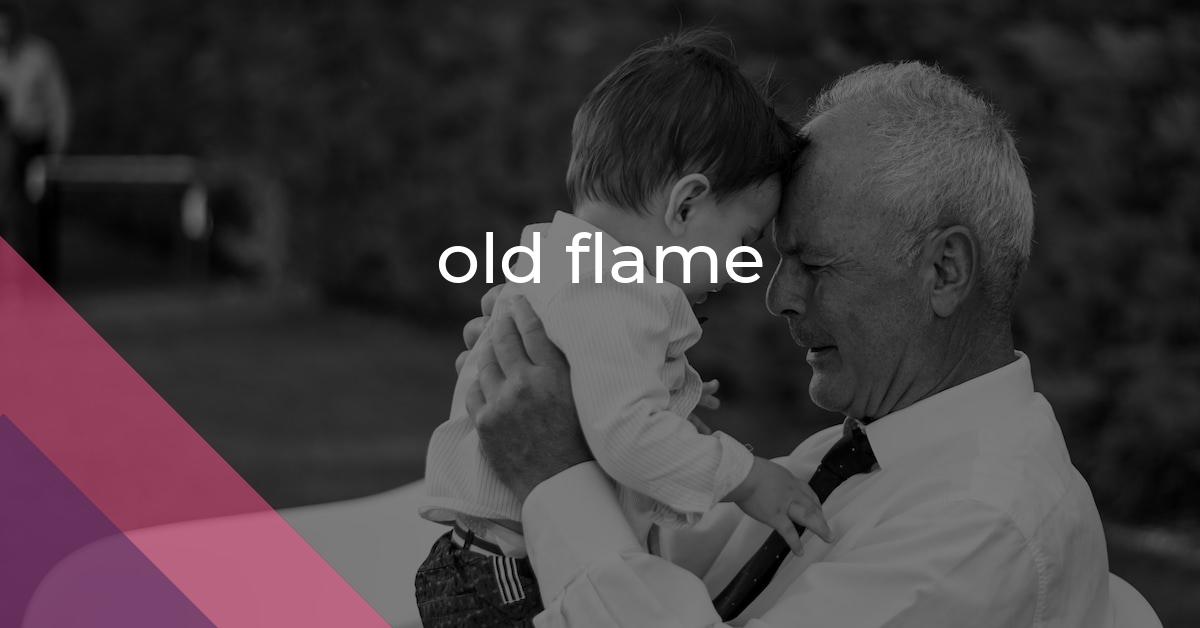old flame: Idiom Meaning and Origin
What does ‘old flame’ mean?
The idiom old flame refers to a person with whom one had a romantic relationship in the past but is no longer involved. The "flame" part suggests the intensity of the relationship while "old" emphasizes its past nature.

Idiom Explorer
The idiom "stir the embers" means to revive old feelings or memories, often in order to rekindle a relationship or spark a discussion.
The idiom "same old story" means a situation or story that is repetitive, familiar, and uninteresting due to its lack of change or variation.
The idiom "play with fire" means to engage in a dangerous or risky activity, often knowing the potential consequences but still proceeding anyway.
The idiom "play the field" means to date or have romantic or sexual relationships with multiple people at the same time, without committing to any one person. It implies a desire to explore one's options before settling down.
The idiom "pass the torch" means to transfer responsibility or leadership from one person to another, usually from an older generation to a younger one.
An idiom used to refer to a particular person's character, occupation, or role, highlighting its uniqueness and individuality.
The idiom "over the hill" refers to reaching a point in life where someone is considered old or past their prime, often used to describe someone who is no longer young or able to do things as well as they used to.
The idiom *old hat* means something that is old-fashioned, outdated, or no longer interesting or impressive. It refers to a hat that is no longer trendy or fashionable, suggesting that something has become clichéd or overused.
The idiom "old hand" refers to someone who is experienced or skilled in a particular activity or job.
Unveiling Past Passions
The idiom "old flame" is a commonly used expression in English, typically referring to a past romantic partner or love interest. It signifies a person with whom someone had a romantic or passionate relationship in the past, but is no longer involved with in the present. The term "old" in this context suggests that the relationship or flame has since faded or extinguished, indicating that it is in the past and no longer active or current.
The etymology of the idiom "old flame" is not explicitly documented, but it likely originated from the metaphorical association between a romantic relationship and a flame. A flame symbolizes passion, desire, and intensity, which can easily be related to the fervor and excitement experienced during the early stages of a romantic connection.
The term "old flame" gained popularity in the mid to late 20th century, possibly reflecting the cultural shifts and transformations in societal attitudes towards relationships and dating during that time. This idiomatic expression encompasses a common human experience of nostalgically or wistfully looking back at past romantic relationships and reminiscing about the intensity of the emotions felt during those moments.
Although "old flame" is primarily used to refer to a past romantic partner, its meaning extends beyond a singular definition. It encompasses the complex and subjective emotions tied to nostalgia, personal growth, and the passage of time. This idiom encourages individuals to reflect on their past experiences and relationships and how they have shaped their present and future.
The idiom "old flame" is frequently used in casual conversations, literature, music, and films. It evokes sentiments of sentimentality, longing, and sometimes even regret. This phrase acknowledges the enduring impact that past relationships can have on individual lives and the significant role they play in shaping one's personal narrative.
"old flame" can also be used metaphorically, extending beyond its romantic connotation. It can be applied to various situations in which someone revisits or encounters something from their past that holds deep emotional significance. This might include revisiting a childhood home, reconnecting with old friends, or engaging in activities that revive memories and emotions associated with a specific period in one's life.
The idiom "old flame" is one of several related idioms that convey similar meanings or sentiments. One such idiom is "first love," which refers to a person's initial experience of romantic love. It is often associated with sentiments of innocence, purity, and the naivety that comes with experiencing love for the first time. Just as an "old flame" represents a past love interest, a "first love" signifies the initial romantic connection someone had in their life.
Another related idiom is "flame up," which describes the rekindling or reemergence of emotions or feelings towards a past love interest. This idiom suggests that the "flame" or passion that once existed between two individuals has been reignited or sparked again. It signifies the resurgence of romantic emotions, often after a period of distance, separation, or time apart.
The third related idiom is "stir the embers," which metaphorically refers to reviving or reawakening dormant or suppressed emotions, memories, or desires. In the context of "old flame," "stirring the embers" conveys the act of reigniting the passion, desire, or even nostalgia associated with a previous romantic relationship. It implies that despite the passage of time, some emotions or connections can still hold power and can be brought back to life.
In essence, the idiom "old flame" encapsulates the universal human sentiment of holding onto and cherishing memories of past romantic relationships or emotional connections. It serves as a reminder of the impact that these experiences can have on one's identity and personal history. Whether it evokes feelings of longing, nostalgia, or acts as a reminder of personal growth, the idiom carries with it a resonance that speaks to the lingering possibilities of the past.
Example usage
Examples of how the idiom old flame can be used in a sentence:
- I ran into my old flame at the grocery store yesterday.
- She often reminisces about her old flame from college.
- He recently reconnected with his old flame through social media.
More "Relationships" idioms



